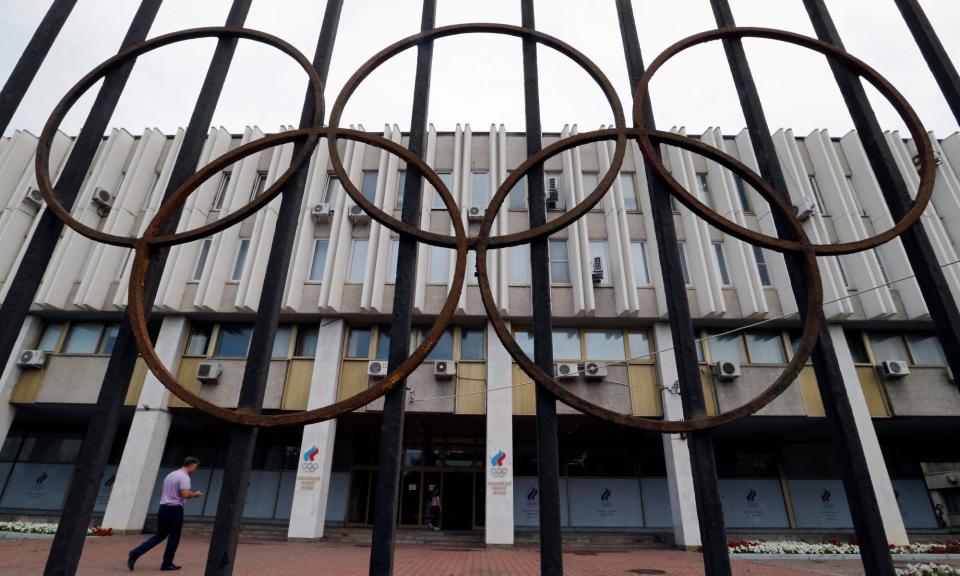‘Deeply sceptical and worried’: Wada wary after Russia’s anti-doping action

The World Anti-Doping Agency says it remains “deeply sceptical and worried” about Russia’s anti-doping practices as some of its athletes prepare to compete as neutrals at this year’s Olympics.
Speaking at his organisation’s annual symposium in Lausanne, Wada’s president, Witold Banka, confirmed Russia’s Anti-Doping Agency and the International Testing Agency were collecting samples from Russian athletes, who could compete in Paris if they qualify and do not support the war in Ukraine.
However he admitted that Wada had been contacted by athletes in other countries, who were concerned that some Russians were not being tested.
“I have received many questions from concerned athletes and others about Russian athletes who may be eligible to compete at the Games as neutrals,” said Banka. “What I can tell you is they all remain subject to testing.”
“Despite this, and given the history, Wada remains deeply sceptical and worried when it comes to Russia. We must remain vigilant and leave no stone unturned to ensure that all the proper education and testing has taken place in advance of Paris.”
Download the Guardian app from the iOS App Store on iPhone or the Google Play store on Android by searching for 'The Guardian'.
If you already have the Guardian app, make sure you’re on the most recent version.
In the Guardian app, tap the Menu button at the bottom right, then go to Settings (the gear icon), then Notifications.
Turn on sport notifications.
Wada has told the Guardian that between 1 January 2023 and 27 February 2024, Rusada collected 12,873 samples from Russian athletes in Russia, sending them for analysis to Wada-accredited laboratories located outside Russia.
In addition, the ITA and the international sports federations have collected 1,232 samples within Russia since the start of 2023, while Russians training and competing outside their country have also been tested.
“When they gather on the starting line, the athletes of the world want to know that everything is fair,” Banka added. “For that to happen, all their competitors, regardless of where they are from, must face the same pre-Games anti-doping conditions as they have.”
Banka’s comments reflect concern in anti-doping circles about how much Russia has changed since its government, security services and sporting authorities were found in 2016 to have colluded to hide doping across more than 1,000 athletes in more than 30 sports.
Although Russia has acknowledged some shortcomings in its anti-doping setup, it denies running a state-sponsored doping scheme.
Meanwhile Wada’s executive board has also affirmed its opposition to the Enhanced Games, an event that would encourage the use of performance-enhancing drugs by athletes, calling it a “dangerous and irresponsible concept”.
“As we have seen throughout history, performance-enhancing drugs have taken a terrible physical and mental toll on many athletes,” it added. “Some have died.”

 Yahoo Sport
Yahoo Sport 





































